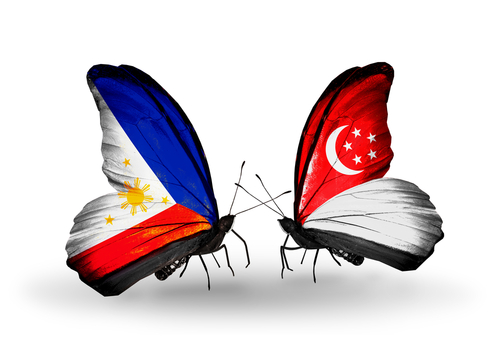
In the middle of anti-Filipino sentiments recently expressed by a minority of Singaporean society, the Philippines and Singapore have stressed the importance of stirring a heightened public awareness of the sturdy ties between the two Southeast Asian countries.
Foreign Affairs Assistant Secretary Minda Calaguian-Cruz said during the second part of informal consultations on the Philippines-Singapore Action Plan (PSAP) that:
“Singapore has become part of the Philippines’ story. The story of Philippines-Singapore relations is a very good one.”
According to data brought forth by Assistant Secretary Calaguian-Cruz, Singapore was the Philippines’ fourth largest trade partner in 2013, and the country’s fourth largest export market based on statistics up to January 2014.
Tourism between the two countries is also at healthy levels, with Singapore being the Philippines’ seventh largest source of visitors in 2012.
In a recent turn of events, however, there were some tensions between the two countries, as a sect of Singaporeans opposed a planned Philippine independence celebration, in a display ofan anti-foreigner sentiment in the island nation.
Furthermore, an anti-Filipino blog post by a Singaporean surfaced online. The post detailed how to “show displeasure with Filipinos without breaking the law” in reaction to what the blogger described as a “Filipino infestation” in the city-state.
The Philippine government asked Singapore to hold the blogger responsible for his remarks that were meant to incite Singaporeans to show intolerance for Filipinos, and likewise warned of the derogatory implications of the post.
Ministry of Foreign Affairs Deputy Secretary Vanu Gopala Menon, head of the Singapore delegation to the PSAP consultations , emphasized that such prejudicial acts are not condoned by the Singaporean government and that the matter is currently under police investigation.
The PSAP was signed in 1998, and reinforces the framework of bilateral cooperation, economic cooperation, and exchange of information technology, capital market development, education, culture, and people-to-people exchanges.
The first round of informal consultations relative to the PSAP took place in 2004.